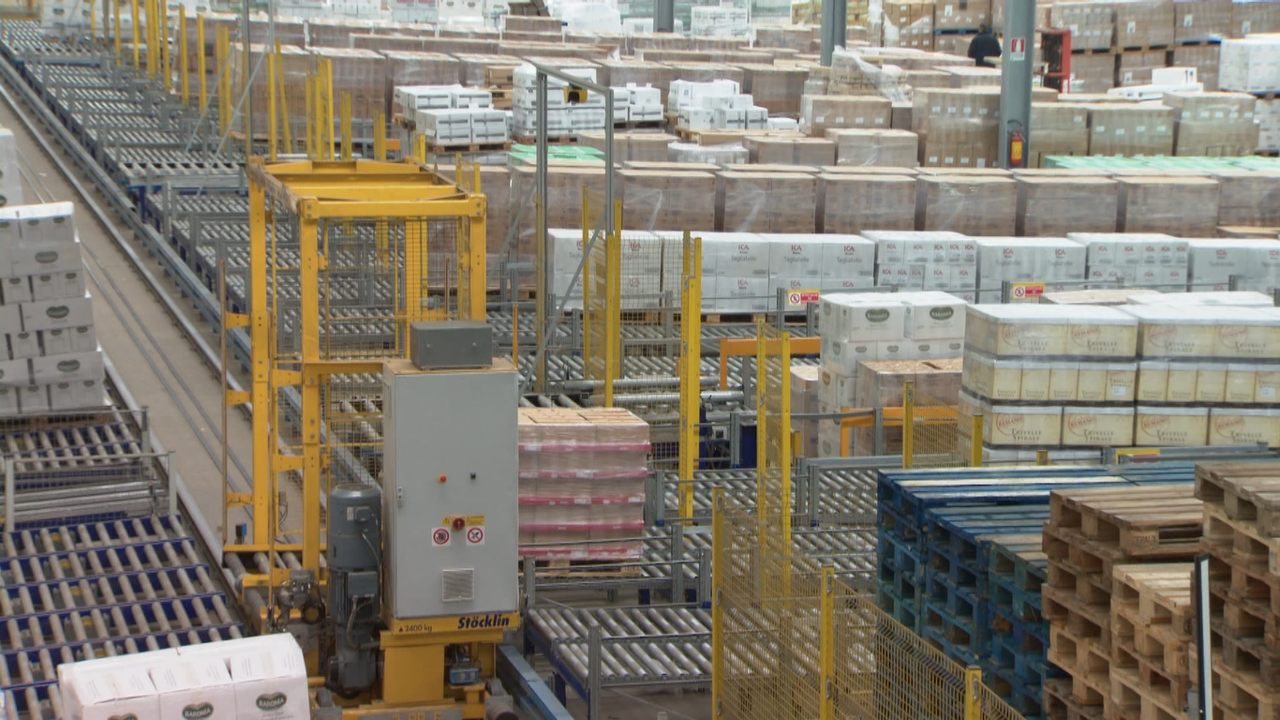
During the last quarter century, and since the pandemic in particular, e-commerce has emerged as a driving force reshaping the way retailers, wholesalers and suppliers conduct business. With the ever-growing demand for online shopping, businesses are faced with the challenge of efficiently managing inventory, order fulfillment and distribution processes. In this digital era, where speed and accuracy are paramount, automated product handling systems have become indispensable tools for everyone in the extended retail supply chain striving to keep up with the surging e-commerce demand.
Automated material handling systems encompass a wide range of technologies designed to automate the movement, storage, retrieval, and processing of goods within a facility. These systems significantly enhance efficiency, reduce operational costs and provide a competitive edge to businesses navigating the complex demands of the e-commerce landscape.
One of the primary advantages of automated product handling systems is their ability to optimize warehouse operations. Traditional manual processes are often time-consuming and prone to errors, especially when dealing with the high volume and rapid pace of e-commerce orders. Automated systems, on the other hand, can seamlessly handle tasks such as picking, packing and shipping, ensuring that orders are processed with precision and speed.
Order fulfillment is a critical aspect of e-commerce success, and automated product handling systems play a pivotal role in meeting customer expectations for quick and accurate deliveries. Automated guided vehicles and robotic systems can efficiently navigate through warehouses, picking items from shelves and transporting them to designated packing stations. This not only reduces the likelihood of errors but also accelerates the order fulfillment process, allowing retailers to meet tight delivery deadlines and enhance customer satisfaction.
In addition, the scalability of automated product handling systems is instrumental in accommodating the fluctuating demands of e-commerce. These systems can adapt to changes in order volume and product diversity, ensuring that retailers and wholesalers can efficiently scale their operations without compromising on efficiency or incurring significant additional costs. The flexibility of these systems allows businesses to respond to market trends and consumer preferences swiftly, maintaining a competitive edge in the fast-paced e-commerce environment.
Accuracy and precision are paramount in inventory management, and automated material handling systems excel in maintaining real-time visibility and control over stock levels. Integration with warehouse management systems enables businesses to monitor inventory levels, track product movement, and generate insightful analytics. This information is invaluable for retailers and wholesalers, helping them make data-driven decisions to optimize stock levels, reduce carrying costs, and minimize the risk of stockouts or overstock situations.
In addition to efficiency gains, automated material product systems contribute to a safer and more ergonomic work environment. By automating repetitive and physically demanding tasks, these systems reduce the risk of workplace injuries and fatigue among warehouse personnel. This not only enhances the well-being of employees but also contributes to increased overall productivity and job satisfaction.
The adoption of automated product handling systems is a strategic imperative for retailers and wholesalers aiming to thrive in the e-commerce era. Solutions like those available from Stoecklin are revolutionizing warehouse operations, enabling businesses to meet the growing demands of online shoppers with speed, accuracy and flexibility. As the e-commerce landscape continues to evolve, Stoecklin experts can help with the integration of automated product handling systems, so companies stay ahead of the competition in the extended retail supply chain.

Recent Comments